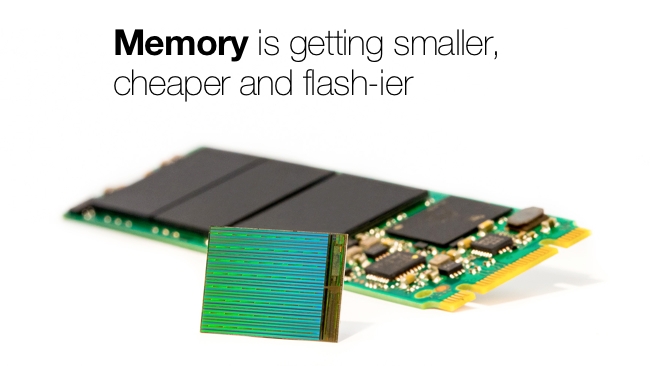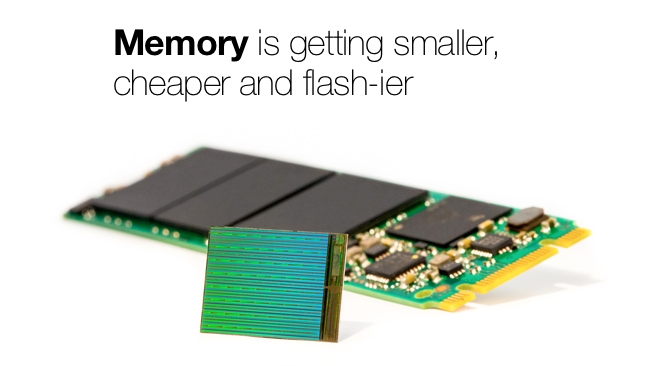
 10 TB solid state disks
10 TB solid state disks
The news that we'll soon be able to buy 10TB Flash memory is pretty amazing in itself, but what it will mean for video users is even more astonishing.
Let's just reflect on the fact that a terabyte of data is a lot of memory. I've been writing professionally for twenty years and, as text, I can still fit the entirety of my output on a single-layer DVD. That's around five gigabytes, or a two hundredth of a terabyte. Admittedly text uses a lot less storage than video, but you get the idea.
For a few years now, laptop capacities have hovered around a terabyte. And that's with a hard disk. SSD storage has typically been around a fifth of that, perhaps reflecting the price difference.
The thing about SSDs is that they are potentially so small. Effectively, they take up no space at all. When the new chips arrive, it's conceivable that you could fit a petabyte in a desktop computer case. How big is a Petabyte? It's a thousand terabytes. More storage than you'll ever, ever need.
Or is it?
Well, at this point, I just don't know the answer. Because while it's always tempting to say that you can never have enough storage (you should see the inside of my garage...), at some point, cloud storage must come into the equation. On one hand, you might say that it's better to have all your stuff with you if the storage is cheap enough to not make any difference, but on the other, if you have all your data in the cloud, at least it's safe if you lose your ten terabyte thumb drive...
With this new type of storage - you can read about how it works here (it's essentially a way to stack memory vertically) - there's going to be very little need for extra storage cards for your cameras. Even with 8K round the corner (not necessary a corner we'll be visiting any time soon, possibly) there will be plenty of space for those 32 Megapixel frames.
An awful lot depends on the price. If it is cheap enough, it could be that this latest generation of solid state memory is the thing that finally leaves spinning mechanical drives on the same scrapheap as vacuum tubes and germanium transistors. But remember also that ten terabytes is an awful lot of data to lose. There's no reason to suspect that this new generation of memory will be unreliable, but that doesn't stop it getting lost, stolen or melted. You should probably temper your celebrations about the new storage capacities with serious thought about how you're going to back all of this stuff up. There's also the question of how you transfer such huge amounts of data. Even Thunderbolt 2 can seem slow when you've got tens of terabytes to transfer. It's a tangible example, perhaps, of plus ça change, plus c'est la même chose.
Tags: Technology



Comments